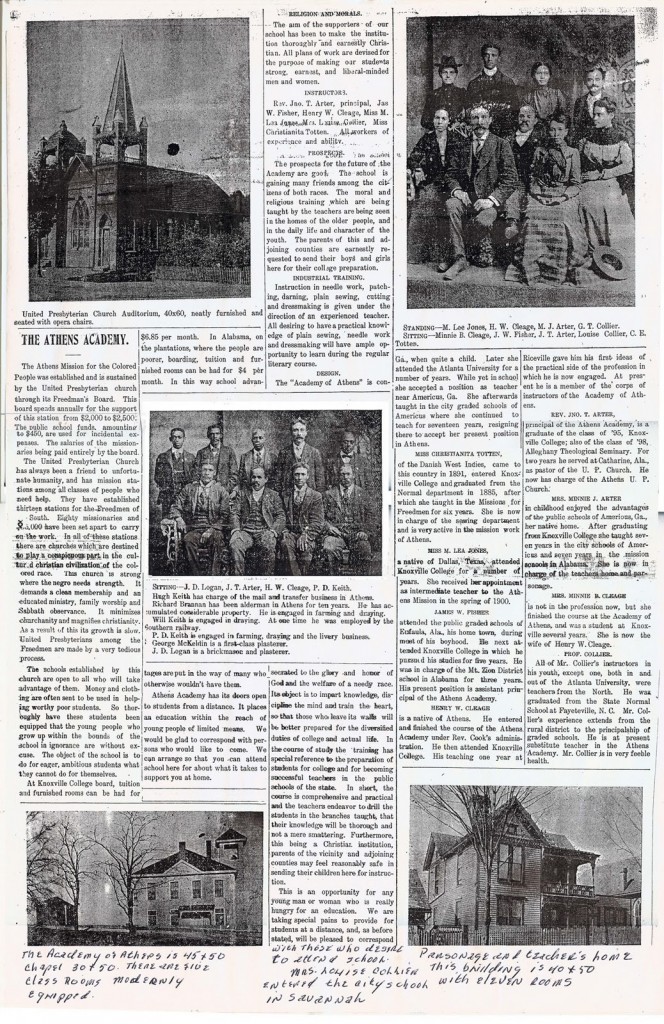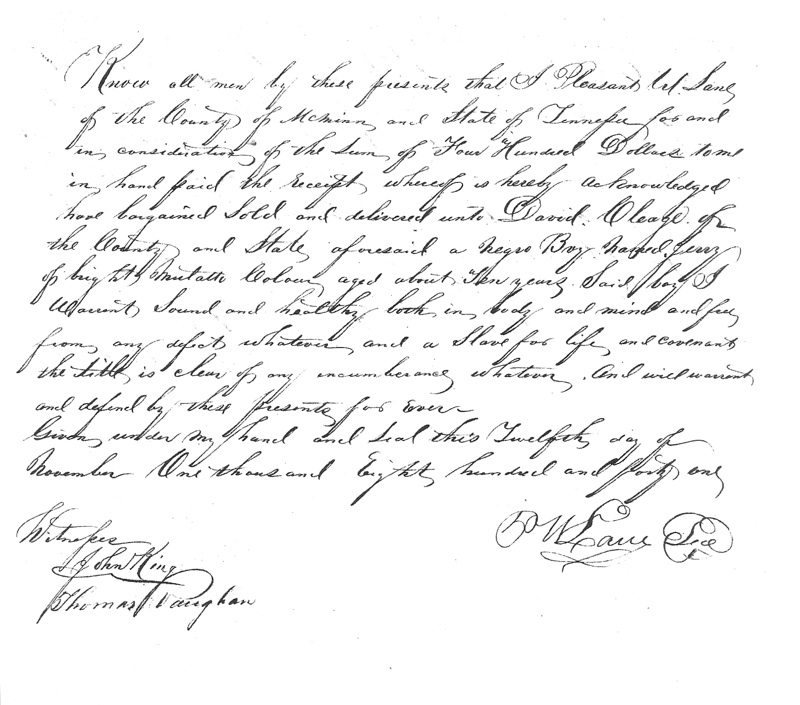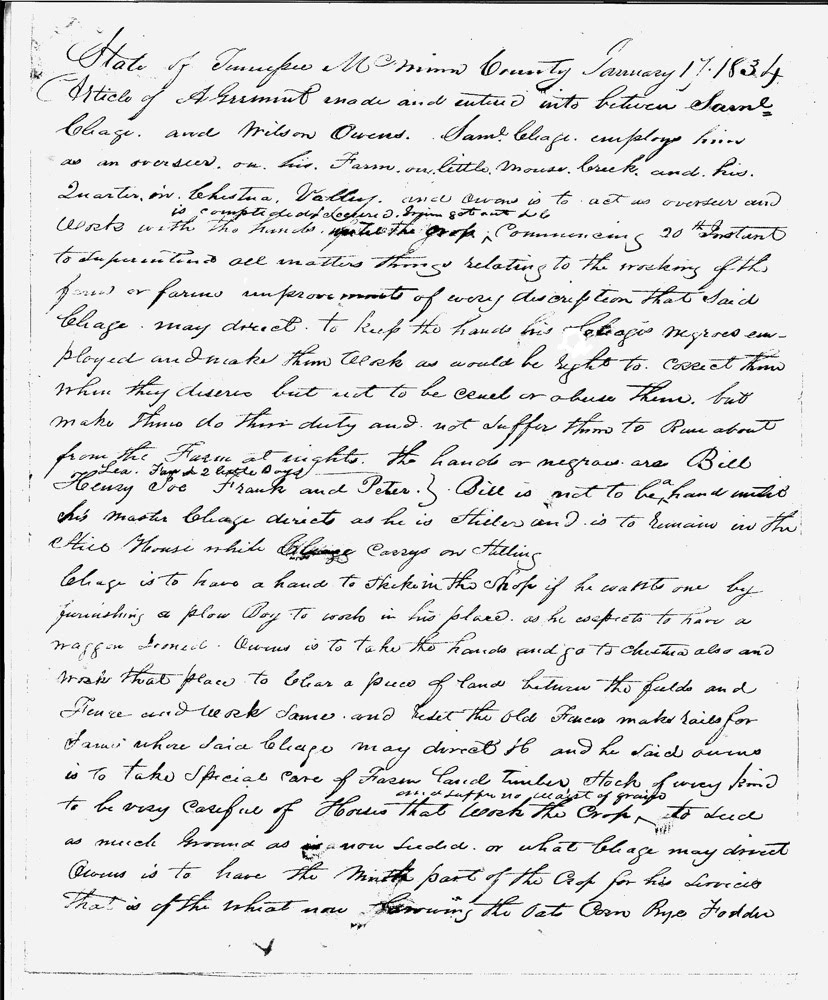
This is a transcription of the article from The Athens Post Athens, Tennessee 21 Dec 1894, Fri • Page 22
The Athens Mission for the Colored People was established is sustained by the United Presbyterian church through its Freedman’s Board. This board spends annually for the support of this station from $2,000 to $2,500. The public school funds, amounting to $450, are used for incidental expenses. The salaries of the missionaries being paid entirely by the board.
The United Presbyterian Church has always been a friend to unfortunate humanity, and has mission stations among all classes of people who need help. The have established thirteen stations for the Freedmen of the South. Eighty missionaries and $55,000 have been set apart to carry on the work. In all of these stations there are churches which are destined to play a conspicuous part in the cultured Christian civilization of the colored race. This church is strong where the negro needs strength. It demands a clean membership and an educated ministry, family worship and Sabbath observance. It minimizes churchanity and magnifies Christianity. As a result of this its growth is slow. United Presbyterians among the Freedmen are made by a very tedious process.
The schools established by this church are open to all who will take advantage of them. Money and clothing are often sent to be used in helping worthy poor students. So thoroughly have these students have been equipped that the young people who grow up within the bounds of the school in ignorance are without excuse. The object of the school is to do for eager, ambitious students what they cannot do for themselves.
At Knoxville College board, tuition and furnished rooms can be had for $6.85 per month. In Alabama, on the plantations, where the people are poorer, boarding, tuition and furnished rooms can be had for $4 per month. In this way school advantages are put in the way of many who otherwise wouldn’t have them.
Athens Academy has its doors open to students from a distance. It places an education within the reach of young people of limited means. We would be glad to correspond with persons who would like to come. We can arrange so that you can attend school here for about what it takes to support you at home.
RELIGION AND MORALS
The aim of the supporters of our school has been to make the institution thoroughly and earnestly Christian. All plans of work are devised for the purpose of making our students strong, earnest, and liberal-minded men and women.
INSTRUCTORS
Rev. Jno. T. Arter, principal, Jas W. Fisher, Henry W. Cleage, Miss M. Lea Jones, Mrs. Louise Collier, Miss Christianita Totten. All workers of experience and ability.
PROSPECTS
The prospects for the. Future of the academy are good. The school is gaining many friends among the citizens of both races. The moral and religious training which are being taught by the teachers are being seen in the homes of the older people, and in the daily life and character of the youth. The parents of this and adjoining counties are earnestly requested to send their boys and girls here for their college preparation.
INDUSTRIAL TRAINING
Instruction in needle work, patching, darning, plain sewing, cutting and dressmaking is given under the direction of an experienced teacher. All desiring to have a practical knowledge of plain sewing, needle work and dressmaking will have ample opportunity to learn during the regular literary course.
DESIGN
The “Academy of Athens” is consecrated to the glory and honor of God and the welfare of a needy race. Its object is to impart knowledge, discipline the mind and train the heart, so that those who leave its walls will be better prepared for the diversified duties of college and actual life. In the course of study the training has special reference to the preparation of students for college and for becoming successful teachers in the public schools of the state. In short, the course is comprehensive and practical and the teachers endeavor to drill the students in the branches taught, that their knowledge will be through and not a mere smattering. Furthermore, this being a Christian institution, parents of the vicinity and adjoining counties may feel reasonably safe in sending their children here for instruction.
This is an opportunity for any young man or woman who is really hungry for an education. We are taking special pains to provide for students at a distance, and as before stated, will be pleased to correspond with those who desire to attend school.
MRS. LOUISE COLLIER
entered the City School In Savannah GA when quite a child. Later she attended the Atlanta University for a number of years. While yet in school she accepted a position as teacher near Americas, GA. She afterwards taught in the city graded schools o Americus where she continued to teach for seventeen years, resigning there to accept her present position in Athens.
MISS CHRISTIANITA TOTTEN
Of the Danish West Indies, came to this country in 1891, entered Knoxville College and graduated from the Normal department in 1885, after which she taught in the Missions for Freedmen for six years. She is now in charge of the sewing department and is very active in the mission work of Athens.
MISS M. LEA JONES
A native of Dallas, Texas, attended Knoxville College for a number of years. She received her appointment as intermediate teacher to the Athens Mission in the Spring of 1900.
JAMES W. FISHER
Attended the public graded schools of Eufaula, Ala, his home town, during most of his boyhood. He next attended Knoxville College in which he pursued his studies for five years. He was in charge of the Mt. Zion District school in Alabama for three years. His present position is assistant principal of the Athens Academy.
HENRY W. CLEAGE
Is a native of Athens. He entered and finished the course of the Athens Academy under Rev. Cook’s administration. He then attended Knoxville College. His teaching one year at Riceville gave him his first ideas of the practical side of the profession in which he is now engaged. At present he is a member of the corps of instructors o the Academy of Athens.
REV. JNO. ARTER,
Principal of the Athens Academy, is a graduate of the class of ’95, Knoxville College; also of the class of ’98, Alleghany Theological Seminary. For two years he served at Catherine, Ala., as pastor of the U. P. (United Presbyterian) Church. He now has charge of the Athens U. P. church.
MRS. MINNIE J. ARTER
In childhood enjoyed the advantages of the public schools of Americus, Ga., her native home. After graduating from Knoxville College, she taught seven years in the city schools of Americus and seven years in the mission schools in Alabama. She is now in charge of the teachers’ home and parsonage.
MRS. MINNIE B. CLEAGE
Is not in the profession now, but she finished the course at the Academy of Athens, and was a student at Knoxville several years. She is now the wife of Henry W. Cleage.
PROF. COLLIER
All of Mr. Collier’s instructors in his youth, except one, both in and out of the Atlanta University, were teachers from the North. He was graduated from the State Normal School at Fayeteville, N. C. Mr. Collier’s experience extends from the rural district to the principalship of graded schools. He is at present substitute teacher in the Athens Academy. Mr. Collier is in very feeble health.

